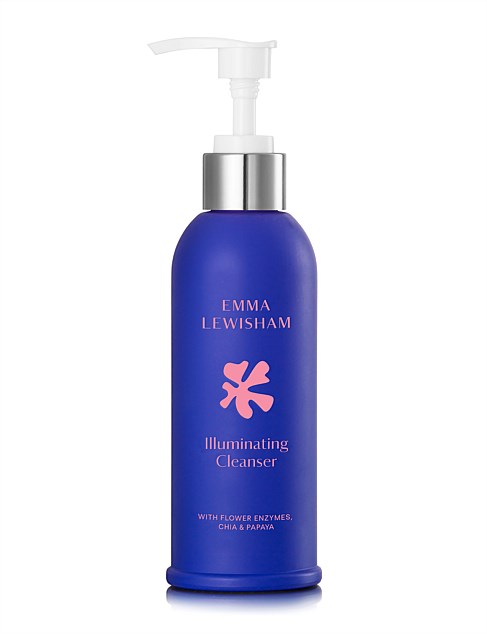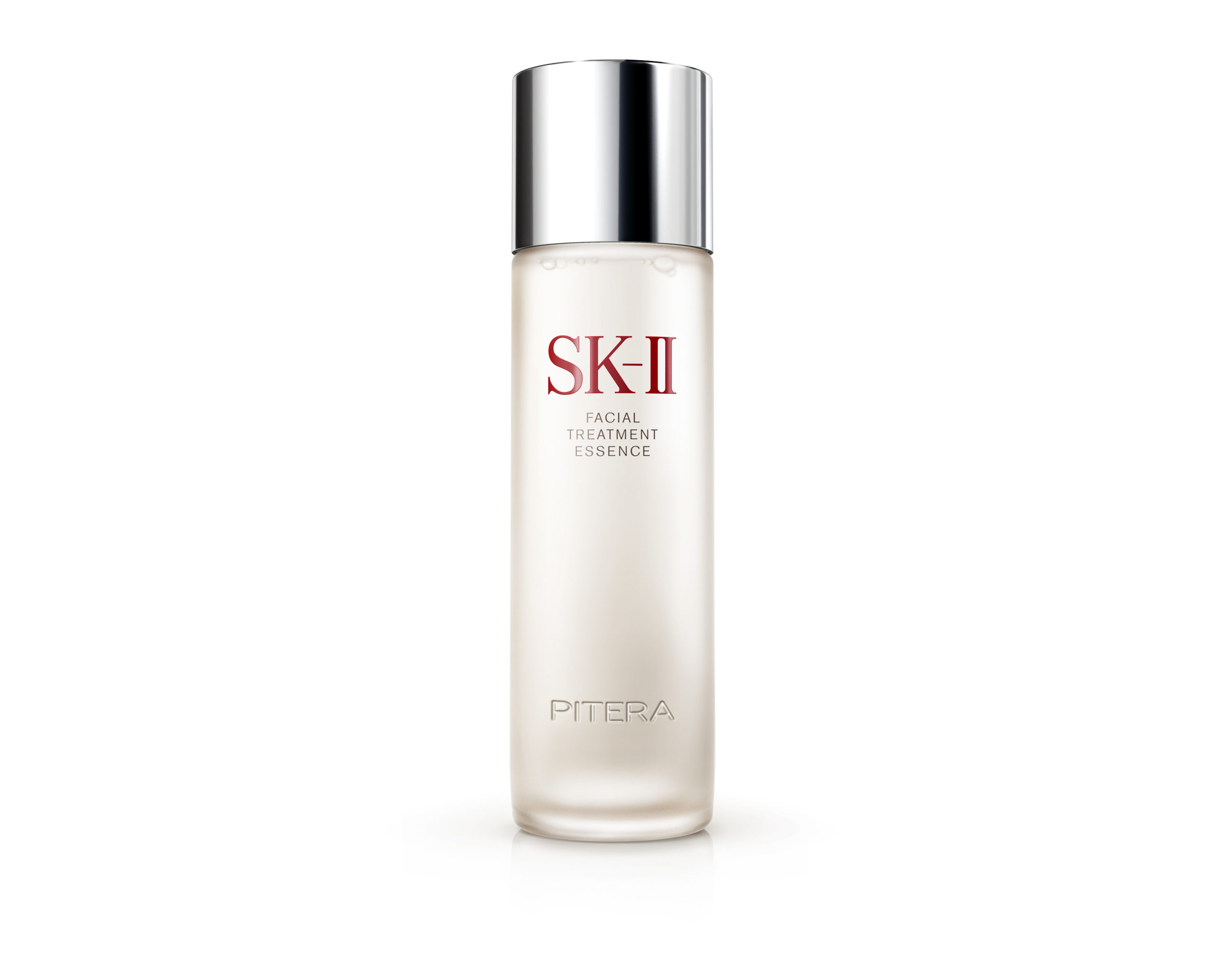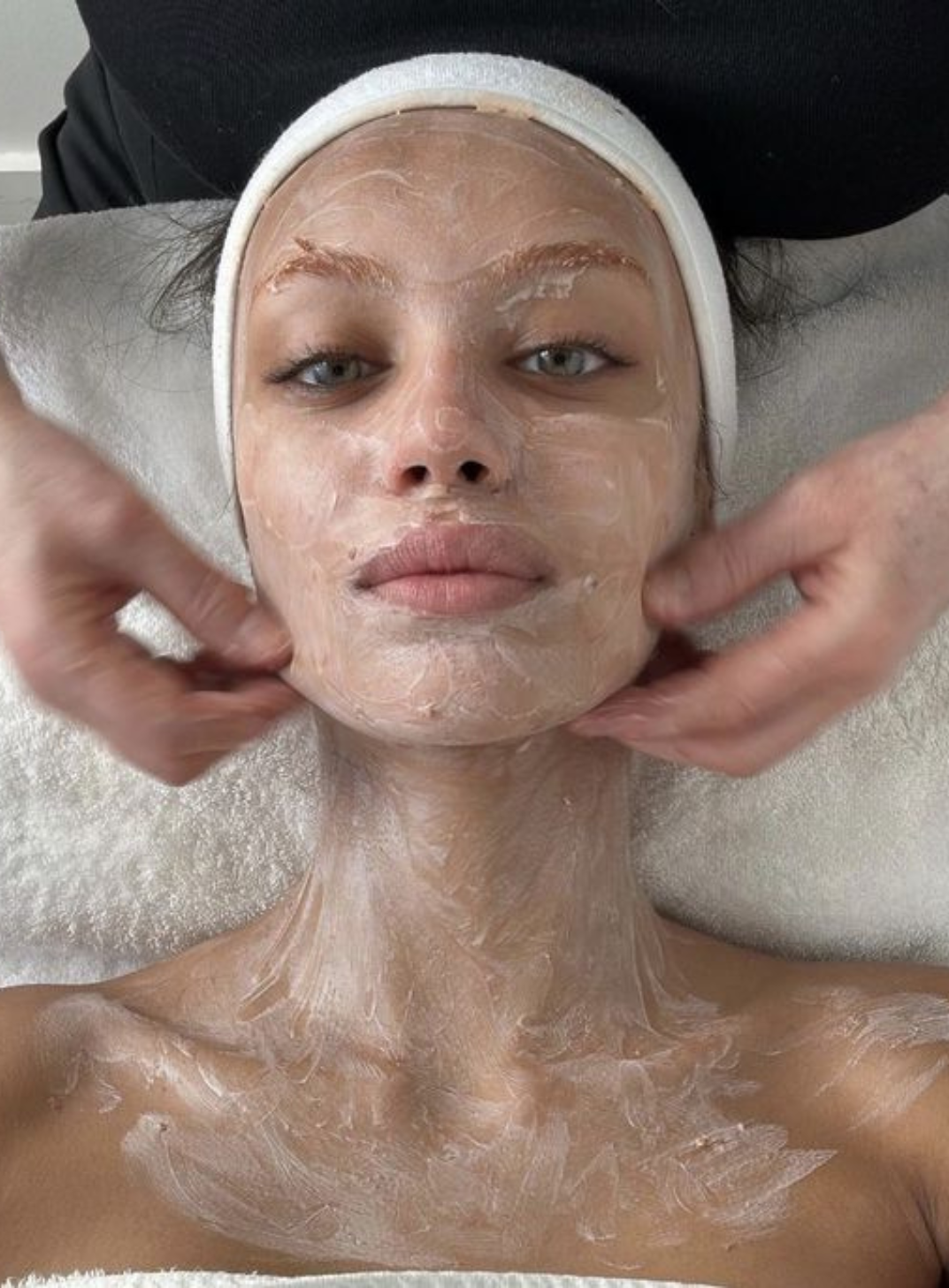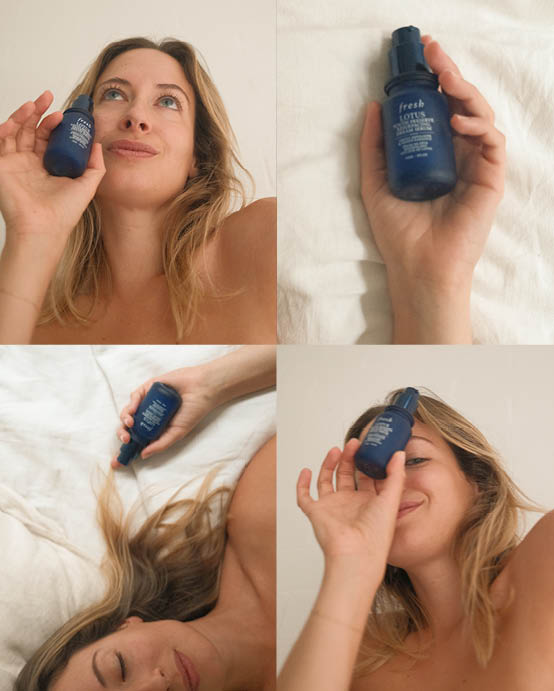What Is Your Skin Barrier? (And How To Look After It)
It’s the answer to healthy and balanced skin.
Like any good performance, we only see the beautiful magic and narrative of what’s on stage, and often forget about the hard work that goes on behind the scenes to ensure the smooth running of the show. Our skin is similar—at a glance we may notice how bright, even and perhaps smooth it is but we forget about the unsung hero and the star of the show that works behind the scenes to ensure the health and balance of our skin overall. Enter: our skin barrier.
Also known as the stratum corneum, our skin barrier is essential for optimising our skin’s health. It works tirelessly, as the outermost layer of our skin. It knits our skin cells together to protect and shield against damaging pollution, UV light, infection, and irritation as well as locking in the moisture and hydration it needs to remain optimal. Made from a blend of lipids, ceramides or fats, the skin barrier is home to a humble ecosystem of bacterial microorganisms that condition and nourish the skin. While healthy, it helps to maintain a normal pH of the skin at 4.5 to 5.5.
How does our skin barrier become compromised?
Like any well-functioning foundation, our skin barrier can experience damage which can compromise its strength and function. While environmental and intrinsic factors can compromise our skin barrier, the biggest culprit is in the way we look after our skin through our routines. Chemist and founder of the namesake brand, Marie Veronique, explains: “Routines often including exfoliation—chemical or physical, strip the top epidermal layers of our barrier lipids and keratinocytes necessary to provide adequate protection.” She adds: “Too much exfoliation or removal of the barrier’s infrastructure can have an extremely negative impact on the skin, eventually leading to sensitised or sensitive skin.” Like over-exfoliation compromising the barrier, the overuse of acids can also be detrimental to how your barrier functions. Ingredients such as vitamin A (when overused) are known to cause sensitivity and irritation, which is a sign to stop and implement your repairing protocol.
What ingredients harm the skin barrier?
In order to be aware of the balance that your skin needs to maintain, Marie shares what other ingredients can harm our barrier without us being aware.
- Stay away from mechanical scrubs—abrasives—that can tear the skin.
- AHA masks are fine once a week as long as you stick with lactic acid (which is actually a natural moisturising factor (NMF) component).
- Stay away from ingredients which dry the skin: alcohol, astringents like witch hazel, anti-acne agents like benzoyl peroxide and highly alkaline cleansers.
- Avoid allergenic/comedogenic ingredients such as mineral oil, lanolin, synthetic fragrance, essential oils (if allergic), drug and cosmetic (D&C) colourants.
- Avoid sunscreen that contains glycolic acid, as a potent acid, it is often too harsh for the skin.
How do I know if my skin is compromised?
Like our body experiencing pain, our skin will tell us when something is amiss and when the skin barrier is compromised, the complexion can become red, shiny, sore, itchy, dry or extremely uncomfortable and like any red flag, it is a tell-tale sign that your skin’s barrier is damaged.
How can you repair and re-balance your barrier?
All is not lost! A damaged skin barrier can be returned. Stop over-cleansing the skin, which strips away the essential moisture and try introducing a more gentle, creamier cleanser or richer balm that will soothe and hydrate the skin. Limit your use of acids and avoid over-exfoliating the skin.
Skin health is also intricately woven into your diet and lifestyle, the skin also responds well to a change in habit. Reducing stress, harmonising your sleeping pattern, creating a work life balance as well as reinforcing the health of your gut with prebiotic; all these factors contribute to repairing and balancing your barrier.
How can you strengthen your skin barrier?
You may find that your barrier is functioning at its optimum (you can tell when your skin is resilient, happy and healthy) but you still want to strengthen it. Implementing nourishing and comforting ingredients such as ceramides, niacinamide, hyaluronic acid and antioxidants such as vitamins C, B5 and E will help to support the skin barrier by preventing environmental damage and healing the skin. Working these into a routine, in addition to applying SPF daily, will help to keep the complexion performing at its best. My personal pick? Supper Club Skincare Sabzi serum, packed full of fortifying ingredients that love your skin.
What skincare routine can help repair the skin barrier?
As recommended by Marie:
- Wear zinc-oxide-only sunscreen faithfully and combine it with an antioxidant serum high in Vitamin C, and a retinol serum at night. Retinol normalises skin cell development and can even reverse past photodamage.
- If your skin is dry applying oils found in the barrier layer naturally will help, i.e., ceramides, cholesterol, fatty acids.
- Sun protection is extremely important so your daily sun protection should be a system rather than just sunscreen.
- Each morning, use an oil blend, vitamin C/antioxidant serum and then zinc oxide-only sunscreen.
- Exfoliate, if you feel you need it, once or twice a week is sufficient.
For dry skin types, Marie says: “you do not need to wash with a cleanser if your skin is dry, try washing with yoghurt instead. It also makes a wonderful mask—spread on a thin layer, leave it on for 10-15 minutes, then rinse (or leave it on all night if you wish). This is the one “mask” you can do every night.”
And voilà, a balanced and healthy barrier!
Image: Jacob Lund / Adobe Stock
What Is Your Skin Barrier? (And How To Look After It)
It’s the answer to healthy and balanced skin.
Like any good performance, we only see the beautiful magic and narrative of what’s on stage, and often forget about the hard work that goes on behind the scenes to ensure the smooth running of the show. Our skin is similar—at a glance we may notice how bright, even and perhaps smooth it is but we forget about the unsung hero and the star of the show that works behind the scenes to ensure the health and balance of our skin overall. Enter: our skin barrier.
Also known as the stratum corneum, our skin barrier is essential for optimising our skin’s health. It works tirelessly, as the outermost layer of our skin. It knits our skin cells together to protect and shield against damaging pollution, UV light, infection, and irritation as well as locking in the moisture and hydration it needs to remain optimal. Made from a blend of lipids, ceramides or fats, the skin barrier is home to a humble ecosystem of bacterial microorganisms that condition and nourish the skin. While healthy, it helps to maintain a normal pH of the skin at 4.5 to 5.5.
How does our skin barrier become compromised?
Like any well-functioning foundation, our skin barrier can experience damage which can compromise its strength and function. While environmental and intrinsic factors can compromise our skin barrier, the biggest culprit is in the way we look after our skin through our routines. Chemist and founder of the namesake brand, Marie Veronique, explains: “Routines often including exfoliation—chemical or physical, strip the top epidermal layers of our barrier lipids and keratinocytes necessary to provide adequate protection.” She adds: “Too much exfoliation or removal of the barrier’s infrastructure can have an extremely negative impact on the skin, eventually leading to sensitised or sensitive skin.” Like over-exfoliation compromising the barrier, the overuse of acids can also be detrimental to how your barrier functions. Ingredients such as vitamin A (when overused) are known to cause sensitivity and irritation, which is a sign to stop and implement your repairing protocol.
What ingredients harm the skin barrier?
In order to be aware of the balance that your skin needs to maintain, Marie shares what other ingredients can harm our barrier without us being aware.
- Stay away from mechanical scrubs—abrasives—that can tear the skin.
- AHA masks are fine once a week as long as you stick with lactic acid (which is actually a natural moisturising factor (NMF) component).
- Stay away from ingredients which dry the skin: alcohol, astringents like witch hazel, anti-acne agents like benzoyl peroxide and highly alkaline cleansers.
- Avoid allergenic/comedogenic ingredients such as mineral oil, lanolin, synthetic fragrance, essential oils (if allergic), drug and cosmetic (D&C) colourants.
- Avoid sunscreen that contains glycolic acid, as a potent acid, it is often too harsh for the skin.
How do I know if my skin is compromised?
Like our body experiencing pain, our skin will tell us when something is amiss and when the skin barrier is compromised, the complexion can become red, shiny, sore, itchy, dry or extremely uncomfortable and like any red flag, it is a tell-tale sign that your skin’s barrier is damaged.
How can you repair and re-balance your barrier?
All is not lost! A damaged skin barrier can be returned. Stop over-cleansing the skin, which strips away the essential moisture and try introducing a more gentle, creamier cleanser or richer balm that will soothe and hydrate the skin. Limit your use of acids and avoid over-exfoliating the skin.
Skin health is also intricately woven into your diet and lifestyle, the skin also responds well to a change in habit. Reducing stress, harmonising your sleeping pattern, creating a work life balance as well as reinforcing the health of your gut with prebiotic; all these factors contribute to repairing and balancing your barrier.
How can you strengthen your skin barrier?
You may find that your barrier is functioning at its optimum (you can tell when your skin is resilient, happy and healthy) but you still want to strengthen it. Implementing nourishing and comforting ingredients such as ceramides, niacinamide, hyaluronic acid and antioxidants such as vitamins C, B5 and E will help to support the skin barrier by preventing environmental damage and healing the skin. Working these into a routine, in addition to applying SPF daily, will help to keep the complexion performing at its best. My personal pick? Supper Club Skincare Sabzi serum, packed full of fortifying ingredients that love your skin.
What skincare routine can help repair the skin barrier?
As recommended by Marie:
- Wear zinc-oxide-only sunscreen faithfully and combine it with an antioxidant serum high in Vitamin C, and a retinol serum at night. Retinol normalises skin cell development and can even reverse past photodamage.
- If your skin is dry applying oils found in the barrier layer naturally will help, i.e., ceramides, cholesterol, fatty acids.
- Sun protection is extremely important so your daily sun protection should be a system rather than just sunscreen.
- Each morning, use an oil blend, vitamin C/antioxidant serum and then zinc oxide-only sunscreen.
- Exfoliate, if you feel you need it, once or twice a week is sufficient.
For dry skin types, Marie says: “you do not need to wash with a cleanser if your skin is dry, try washing with yoghurt instead. It also makes a wonderful mask—spread on a thin layer, leave it on for 10-15 minutes, then rinse (or leave it on all night if you wish). This is the one “mask” you can do every night.”
And voilà, a balanced and healthy barrier!
Image: Jacob Lund / Adobe Stock
















Comments